When choosing my heroes I thought of many people from the past that I have admired. Obviously, I never met any of them. They are mostly famous for things they wrote.
Lao Tsu entered my life when I was in my 20s, during the 1970s. I was studying Chinese philosophy, which is loaded with impressive thinkers but, for me, Lao Tsu stands head and shoulders above the rest. He is considered the originator of Taoism.
The legends about him are highly evocative and appealed to my itchy feet. He was reputed to be a great traveller, teaching his philosophy wherever he went. Some accounts speak of him reincarnating many times but the most famous story centres around his disappointment with the society he was first born into.
Sima Qian, a historian from 145BC, says Lao Tsu was tired of the moral decay among people in Chengzhou where he lived.
The kingdom was declining. He travelled west and lived on the frontier until he was 80 years old. He was recognised by the guard Yinxi at a western gate. Yinxi asked Lao Tsu to write down his wisdom before departing China. This became the Tao Te Ching, a book that has been translated into English and I treasure. I recently had to replace it because the original copy I had was water damaged and fell apart from overuse.
The present version of the text apparently includes additions from later periods, so may not be attributed to Lao Tsu in its entirety. In some versions of the legend of Lao Tsu’s life, Yinxi, the gatekeeper, liked the work so much that he became a student and left with Lao Tsu, never to be seen again. In others, the "Old Master" travelled all the way to India and was the teacher of Siddhartha Gautama, the Buddha. Others say Lao Tsu was the Buddha himself.
A seventh-century work, the Sandong Zhunang ("Pearly Bag of the Three Caverns"), tells us that Lao Tsu pretended to be a farmer when he reached the western gate, but was recognised by Yinxi, who asked to be taught by the great master. Yinxi wanted to find the Tao (which means ‘way’) and said his long study of astrology had led him to recognise the master.
Yinxi completed the training and they set off for the western lands of the ‘barbarians’. They are said to have reached the highest religious rank called "Preceptor of the Three Caverns". It is said that Lao Tsu is the living Tao personified, teaching others how to achieve salvation and peace.
Some of the contents of the Tao Te Ching were incomprehensible to me when I first read them but over time, with much help from studying Confucius’ work, the I Ching, the Way of Taoism began to come to life for me. I carried that book with me on every journey I undertook and I consulted it during times of stress or deepest joy. Always it would provide me with a calming influence, an acceptance of what was now…. what was present for me at any given moment.
It is hard to choose a favourite chapter from the book. Each has its own special charm and a place in my heart. Some remind me of hard times, others remind me of explosions of joy and bliss. I can only recommend that you buy a copy and familiarise yourself with the contents as I did over many years and let it guide you through all your ups and downs. Lao Tsu will lead you to love your life, that much I can guarantee.

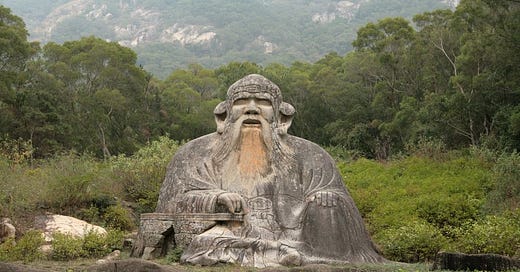


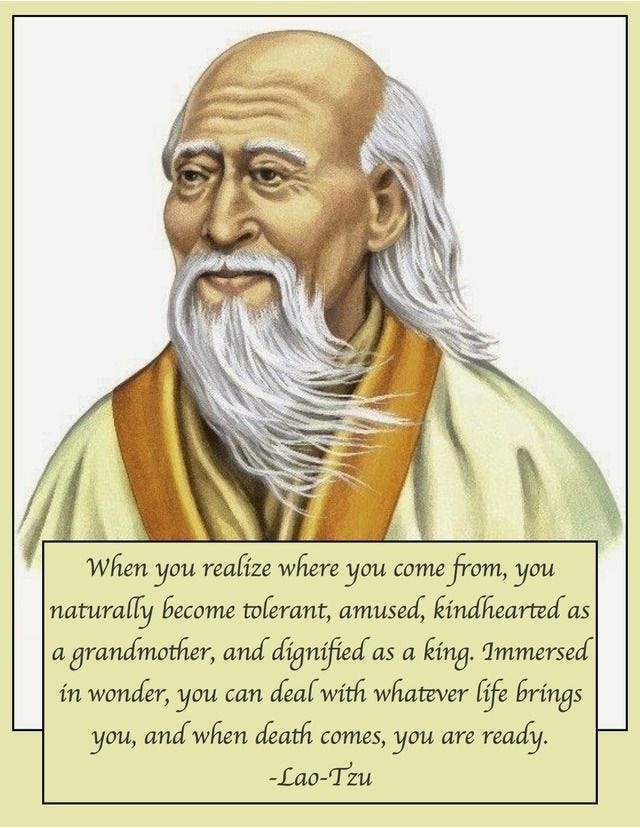


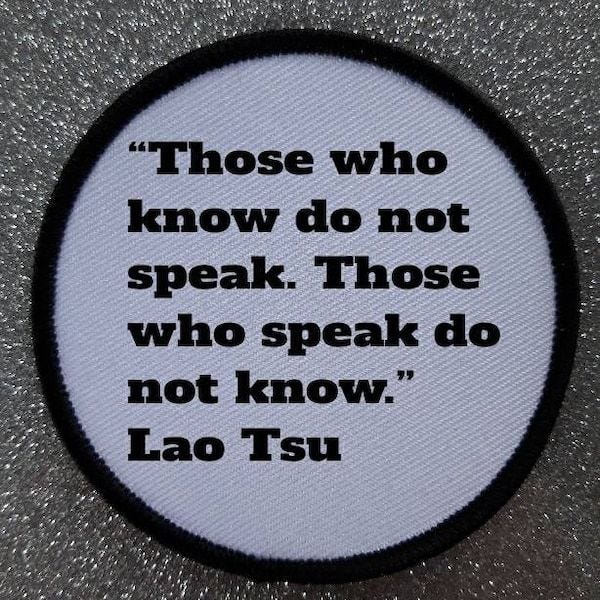
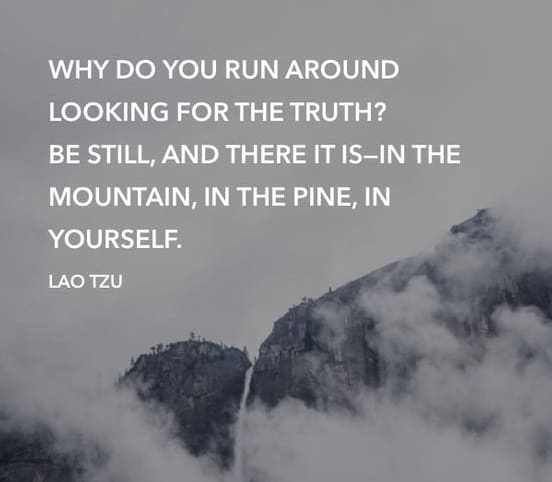
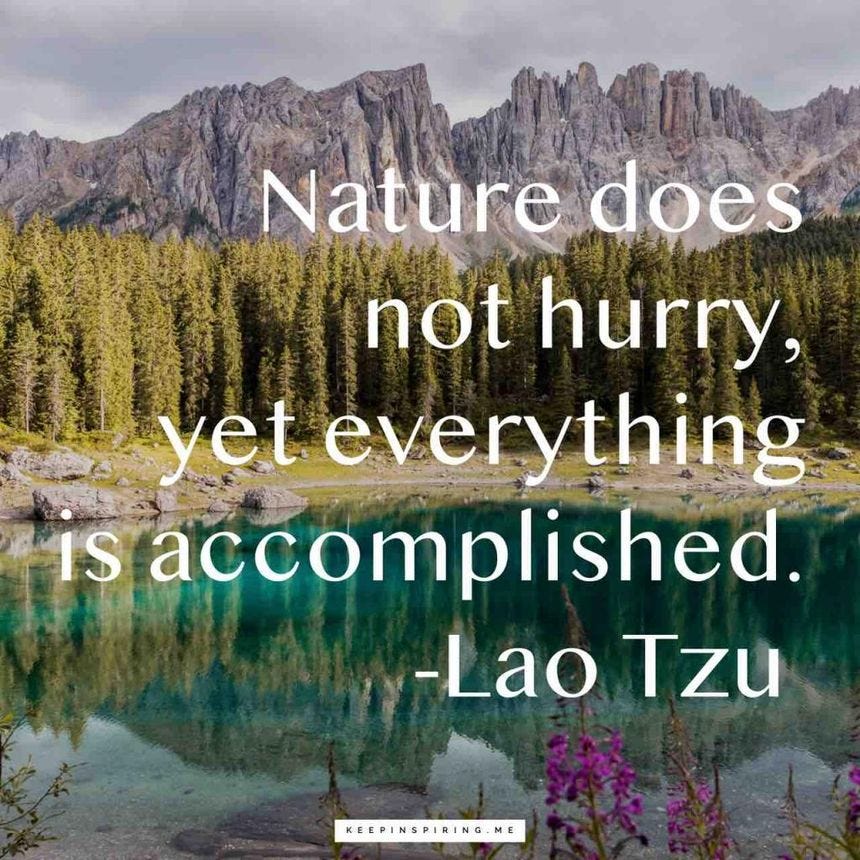
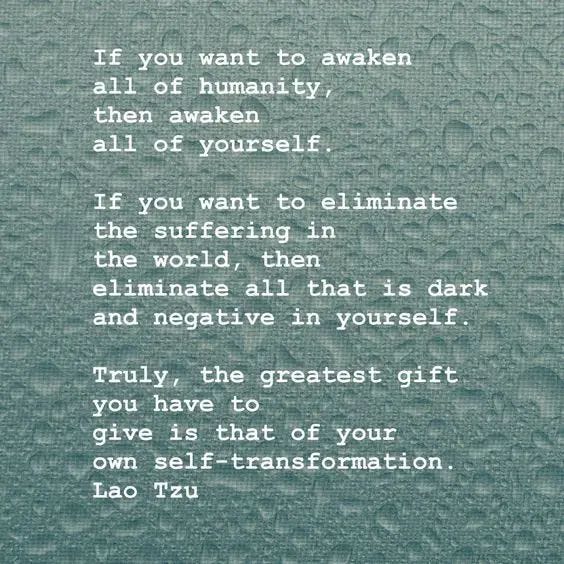
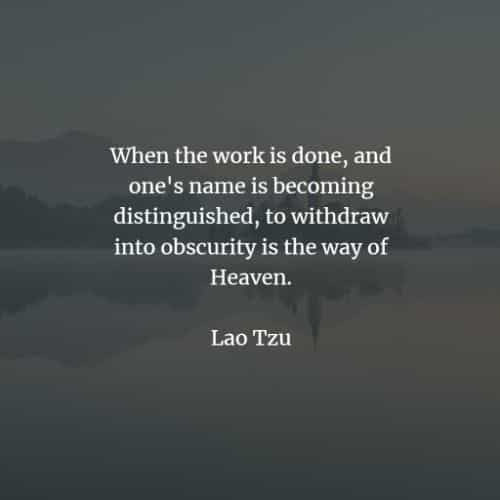
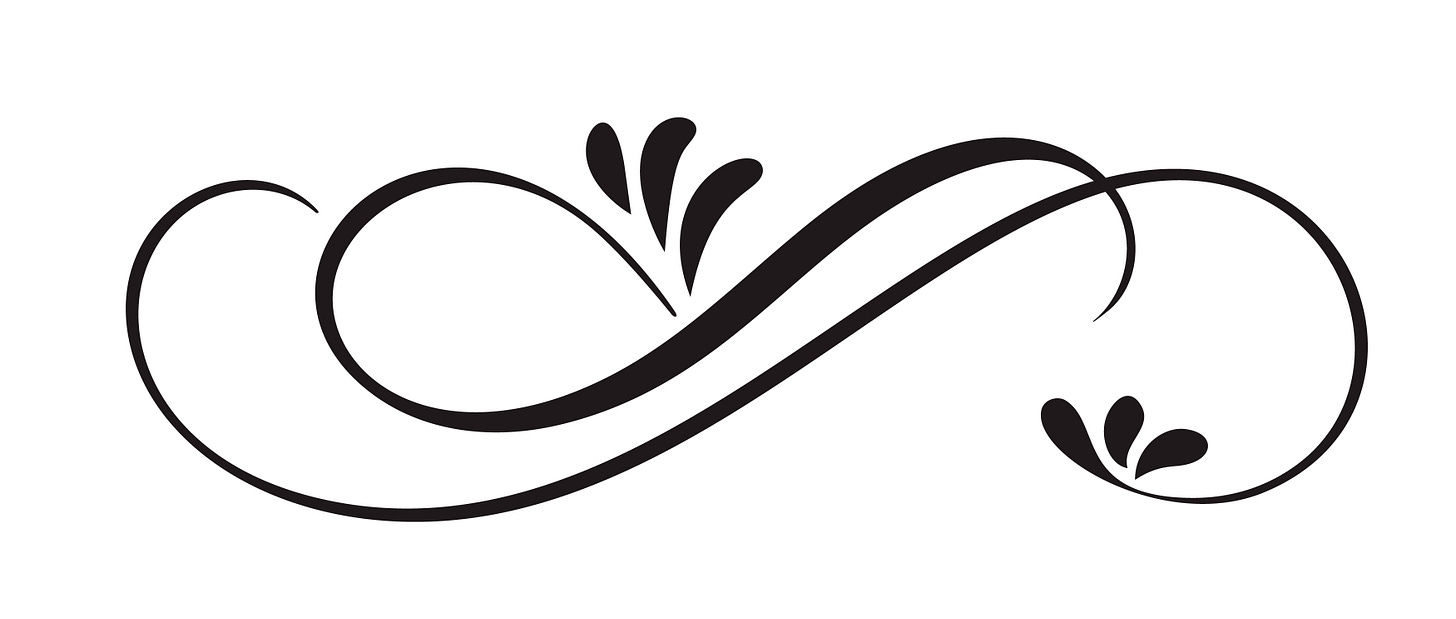
The way which is the way cannot be spoken of.
Lao Zi said, “When
a wise person hears the Tao, this person will practice it
diligently. When an average person hears it, this person
will practice it on and off. When a foolish person hears
it, this person will laugh at it loudly. If this person doesn’t
laugh at it loudly, it’s not the Tao.”
--From Zhuan Falun, Lecture 9
https://en.falundafa.org/eng/pdf/ZFL2014.pdf